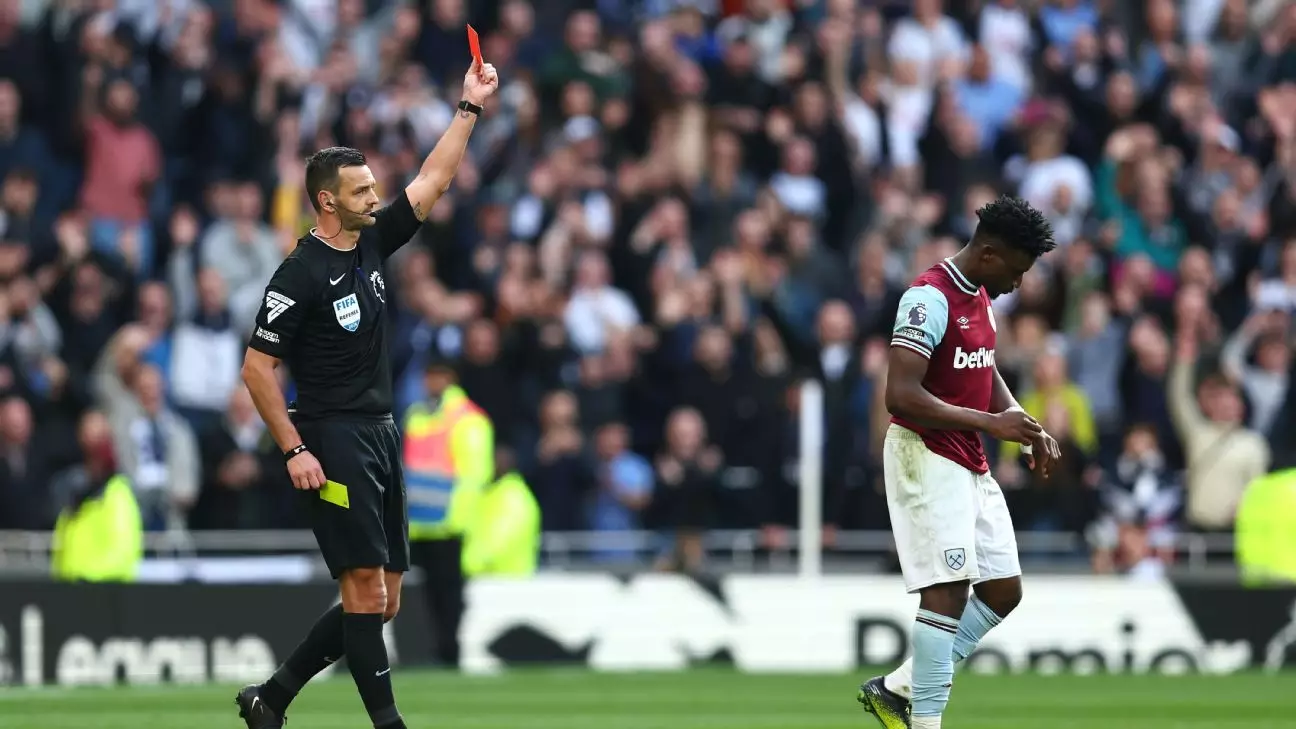In October 2023, West Ham United winger Mohammed Kudus found himself at the center of controversy in a match against Tottenham Hotspur. The Ghanaian international’s aggressive actions during the game not only led to an immediate red card but also escalated into a series of repercussions that have cast a long shadow over his season. Kudus’s foul on Spurs defender Micky van de Ven stirred a heated confrontation, showcasing not only his poor judgment on the field but also raising questions about sportsmanship in the Premier League. His decision to push van de Ven in the face, followed by a similar act against teammate Pape Matar Sarr, prompted a reaction from the referee, who upgraded a yellow card to red after a VAR review. This incident drew critical responses from fans and commentators alike, highlighting the need for players to maintain their composure, especially in high-stakes environments.
On November 8, the Football Association (FA) announced that Kudus’s suspension would extend to five matches, adding to an already painful three-match automatic suspension. Additionally, he was slapped with a fine of £60,000 ($77,286), emphasizing the serious nature of his misconduct. This financial penalty is not only a personal setback for the player but also represents a significant loss for West Ham, who are left to contend with his absence in crucial upcoming fixtures, including matches against Newcastle United and Arsenal. The ramifications of Kudus’s actions have left a significant void in the Hammers’ attack, thereby impacting their overall performance and morale.
West Ham itself is not exempt from sanctions, receiving a fine of £30,000 for failing to control their players during the incident. This incident reflects poorly on the club, as it raises questions about the team’s culture and discipline. While the club expressed disappointment over the outcome, they acknowledged the need to respect the process, indicating a willingness to confront the issue constructively. Such fines highlight a broader trend within the league, where clubs are held accountable for player behavior, pointing to a collective responsibility to uphold the integrity of the sport.
Remarkably, despite the fallout from the incident, Kudus expressed remorse during the hearings, stating he was “deeply embarrassed” by his actions. This acknowledgment is crucial, as it represents a step toward personal accountability, which is essential for long-term growth as a player. However, the real test lies in his ability to learn from this experience and channel his competitive spirit in a more constructive manner in future matches. Moving forward, both Kudus and West Ham United will need to rebuild and refocus, learning from this disruption as an opportunity for growth and improved team cohesion. The impact of Kudus’s actions serves as a stark reminder of the thin line athletes walk between passion and violence, underscoring the need for maintaining composure in high-pressure situations.

Leave a Reply